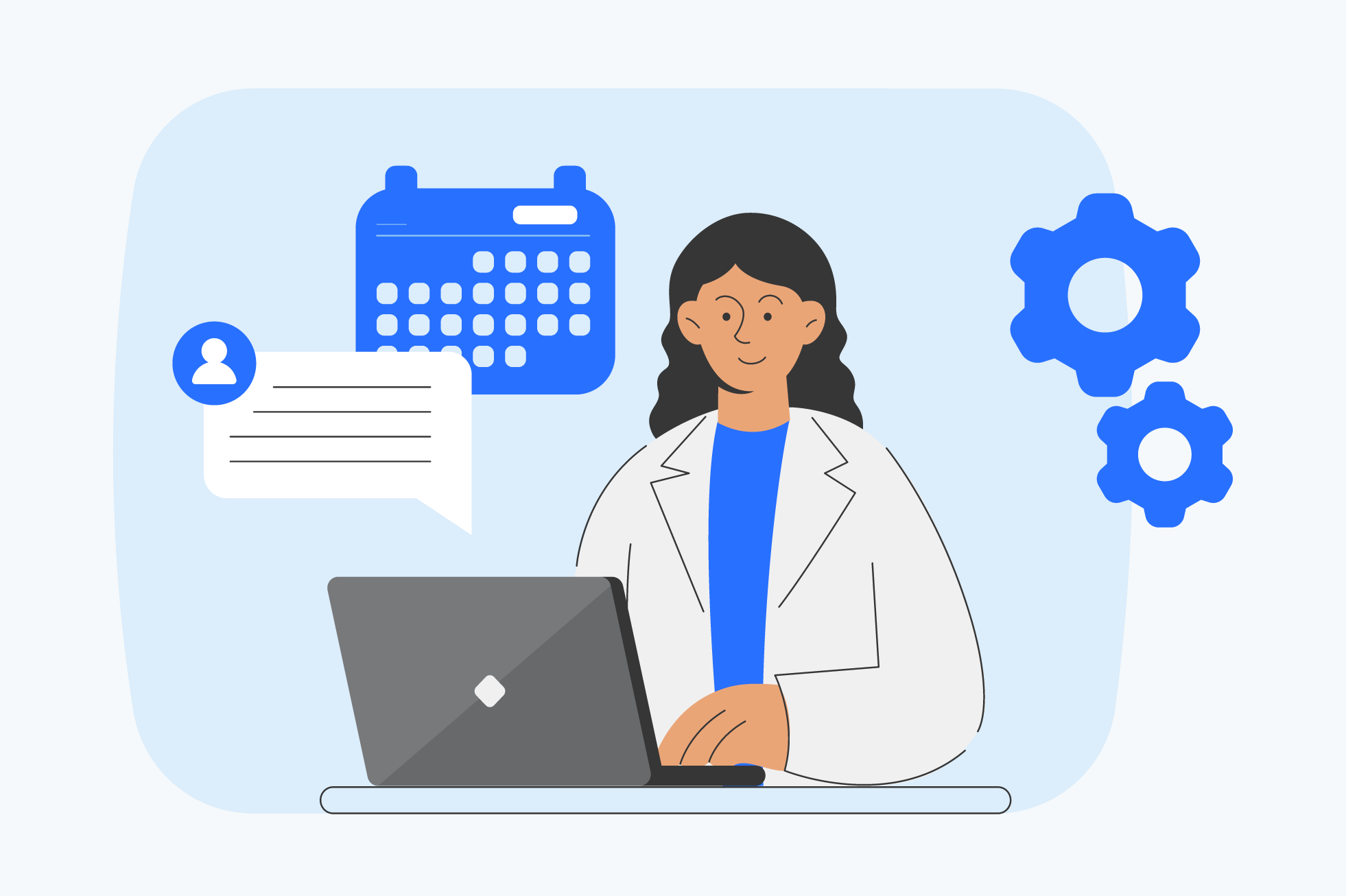6+ Ways AI Enhances Accuracy in Medical Documentation (2024)

Medical documentation has always been a critical aspect of patient care, but the margin for error is narrow, and the consequences of mistakes can be severe. Enter AI technologies—a transformative force that is reshaping the way healthcare systems manage patient records. Did you know that AI-powered tools can reduce documentation errors by up to 70%? That’s right! In this article, we'll explore how artificial intelligence is not just improving the speed but also the AI medical documentation accuracy, ultimately leading to better patient outcomes. From real-time error detection to advanced natural language processing, the future of clinical documentation is here, and it’s more accurate than ever before.
Real-Time Error Detection
Real-time error detection in AI-powered medical documentation represents a transformative leap forward in clinical practice within the healthcare sector. These advanced AI tools are meticulously designed to instantly flag potential errors as clinical notes are being created, ensuring that inaccuracies are caught and corrected before records are finalized. This proactive approach significantly reduces the likelihood of incorrect data entries or omissions, which are common pitfalls in manual documentation processes.
Experts in the field have observed that AI's capacity to cross-reference patient data with established medical standards and previous records allows it to detect inconsistencies that might be missed by human eyes, such as dosage errors or conflicting medical histories. By catching these errors in real-time, AI systems help maintain the integrity of patient records, which is crucial for accurate diagnosis and treatment planning.
Moreover, this technology allows healthcare professionals to focus more on patient care rather than being bogged down by administrative tasks. This shift not only enhances the quality of care provided but also reduces the administrative burden on medical staff, leading to increased job satisfaction and reduced burnout. As AI continues to evolve, its role in ensuring AI medical documentation accuracy will become even more integral to modern healthcare practices.
Enhanced Natural Language Processing (NLP)
Enhanced Natural Language Processing (NLP) driven by AI is revolutionizing the accuracy and efficiency of clinical documentation. Unlike traditional methods, AI-driven NLP has the ability to interpret and document medical terms with a level of precision that far surpasses manual processes. This technology is designed to understand the complexities of medical language, including nuanced terminology and context-specific phrases, which are often challenging for non-specialized systems to process correctly.
One of the most significant advantages of AI-powered NLP is its capability to automatically convert spoken language into accurate written records. This feature not only saves time but also ensures that the documentation reflects the exact words and intentions of healthcare providers. By capturing spoken dictation with high fidelity, NLP reduces the risk of misinterpretation or error that can occur when clinical notes are transcribed manually. Furthermore, AI-driven NLP enhances the clarity and consistency of medical documentation.
By standardizing how information is recorded and ensuring that terminology is used correctly and consistently, this technology contributes to more coherent patient records. Experts agree that improved clarity in documentation leads to better communication among healthcare teams, which is crucial for delivering high-quality patient care. As AI technologies continue to advance, their role in optimizing clinical documentation through NLP will become increasingly indispensable.
Automated Coding and Billing
Automated Coding and Billing powered by AI is dramatically simplifying the traditionally complex coding process in the healthcare sector, leading to more accurate and efficient billing and insurance claims. AI-driven systems are designed to reduce errors in coding by meticulously analyzing the structured data provided and ensuring that the correct codes are applied every time. This precision is crucial because even minor errors in coding can lead to significant delays in claim processing, denials, or underpayments.
One of the standout benefits of AI in this area is its ability to handle the vast array of medical codes with ease, automatically matching the appropriate codes to the services and treatments documented by healthcare providers. This not only ensures accuracy but also streamlines the entire billing process, making it more reliable and less prone to human error. Moreover, AI significantly decreases the time spent on manual coding. By automating what was once a time-consuming and labor-intensive task, AI allows healthcare organizations to process claims faster, leading to quicker reimbursements and improved cash flow. Experts in the field recognize that as AI continues to evolve, its role in enhancing the efficiency of coding and billing processes will become increasingly critical to the financial health of healthcare organizations and their revenue cycle management.
Integration with Electronic Health Records (EHR)
Integration with Electronic Health Records (EHR) through AI is revolutionizing how patient data is managed, ensuring that information is both accurately entered and securely stored. AI seamlessly integrates with existing EHR systems, reducing the risk of errors that can occur during manual data entry. This integration is crucial in maintaining the integrity of patient records, as it ensures that all information is correctly logged without the inconsistencies often found in traditional methods.
One of the most valuable features of AI in EHR integration is its ability to automatically update records with the latest patient information. As new data is generated—whether through lab results, prescriptions, or treatment notes—AI ensures that these updates are immediately reflected in the patient’s EHR.
This real-time updating process enhances the reliability of medical histories, providing healthcare providers with the most current and comprehensive view of a patient’s health status. By keeping records continuously updated and error-free, AI improves the quality of care that providers can offer. With a more accurate and reliable medical history at their fingertips, healthcare professionals can make better-informed decisions, ultimately leading to improved patient outcomes. As deep learning models and machine learning continue to advance, the role of AI in EHR integration will be integral to the future of patient care.
Error Reduction in Prescriptions
Error Reduction in Prescriptions through AI is playing a critical role in enhancing patient safety by minimizing the risks associated with medication errors. AI systems meticulously analyze prescription data to identify potential errors or harmful drug interactions before they reach the patient. This advanced analysis helps healthcare providers catch issues that might be overlooked during manual reviews, significantly reducing the likelihood of dangerous mistakes.
One of the key benefits of AI in this area is its ability to prevent common prescription errors, such as incorrect dosages or inappropriate drug combinations. By cross-referencing patient records, current medications, and established medical guidelines, AI ensures that every prescription is accurate and safe. This proactive approach not only protects patients from potential harm but also boosts the confidence of healthcare providers in the treatment plans they prescribe. Increased patient safety is the ultimate goal of AI-driven prescription error reduction. By ensuring that all medications are accurately documented and thoroughly checked for errors, AI contributes to a safer, more reliable healthcare environment. As AI technology continues to evolve, its role in safeguarding patients from prescription errors will become an essential component of modern clinical practice.
Quadrant Health’s industry-leading AI medical scribe transcribes encounters in real time making documentation more accurate and efficient. To request a demo or get in touch with our team, click here.
Final Thoughts
AI technologies are revolutionizing AI medical documentation accuracy, offering tools and technologies that significantly reduce errors and improve patient outcomes. From real-time error detection to advanced analytics, AI provides numerous ways to ensure that clinical documentation is as precise and reliable as possible.
As AI continues to evolve, its impact on healthcare documentation will only grow stronger, making it an indispensable tool for healthcare providers. Ready to explore how AI can enhance your medical documentation? Dive deeper into these technologies and see the difference they can make!

